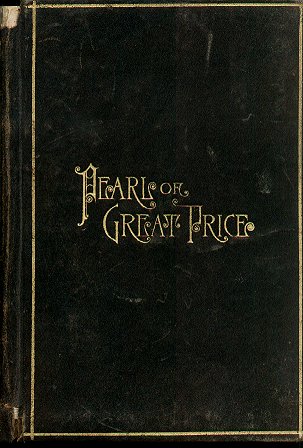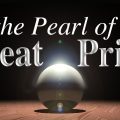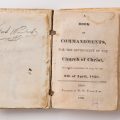Question
Dear Gramps,
This is my second time sending you this question, and either last time I did this wrong, or you couldn’t answer. So I am writing again. This is something that has really been bothering me for a long time. About four months ago I started talking to a friend of mine that is an ex-Mormon. He was raised in the Church and then at 17 became inactive and is now a very strong Christian. I asked him one time why he left the Church and why he no longer believes it. As our conversations got more in depth, he told me about something he had learned about the Papyrus used by Joseph Smith that the Book of Abraham comes from. He has all kinds of books and other things that tell the story that the Papyrus was recovered some years ago, that the Church even recognized them as being the original ones used by Joseph Smith. When they were sent to BYU to be translated again, the translations came to be about some Egyptian thing, with no mention of Abraham at all. The man that translated them sent the translations to the First Presidency, with a letter asking to be removed from the church records. And then the Church denied that those Papyrus were the right ones. What do you make of this story? And there is so much evidence that this happened that I don’t believe that it is just some anti-Mormon story. Please tell me what you know about this and what you make of it. I would really like to know what to say to my friend.
Thanks.
HNK
Answer
Dear HNK,
There are two or three things to consider in contemplating your question. The charge is that the translation of recovered papyrus fragments did not concur with the Book of Abraham and therefore the Church is not true. It’s amazing to me that some people can lose their testimonies over such trivial matters as these. That demonstrates that their testimonies are on very shaky ground and that they may be tossed to and fro, and carried about with every wind of doctrine, by the sleight of men, [and] cunning craftiness, whereby they lie in wait to deceive.
Found with the mummies and acquired by the Church were two rolls of papyrus and two or three other small pieces. What was discovered in 1967 in the Metropolitan Museum of Art in New York and turned over to the Church were, as I recall, about three fragments of papyri. They were confirmed to be authentic because they had been pasted onto a paper backing that contained the handwriting of Emma Smith, the prophet’s wife.
These fragments were sent to Brigham Young University and were examined by several scholars both in and out of the Church. I know of none of the LDS scholars who left the Church because of their translation, but if such is the case, I would put that person in the same category as your friend.
There is no evidence that the few fragments found in the Metropolitan Museum of Art contained any part of the Book of Abraham. There is no evidence that the papyri obtained by the prophet contained only the Book of Abraham. In fact, there is evidence to the contrary. It is reported by B. H. Roberts that “Two or three other small pieces of papyrus, with astronomical calculations, epitaphs, &c, were found with others of the mummies” (B. H. Roberts, New Witnesses for God, Vol.1, p. 440.) The fragments found in the Metropolitan Museum of Art could well have been those rather than the papyri from which the Book of Abraham was translated.
It may also be well to consider how the prophet received the gift to restore ancient documents. The error that many detractors make is to assume that he was just a translator, and as such was a slave to the written word. Such is far from the case. For example, look at Section 7 of the Doctrine and Covenants. This section is the translation of a record made on parchment by John the Beloved “and hidden up by himself.” That parchment was undoubtedly never in the hands of the Prophet, but it was translated by the Urim and Thummim. The Book of Moses in the Pearl of Great Price was “An extract from the translation of the Bible as revealed to Joseph Smith the Prophet.” This amplified and corrected version of part of Genesis never came from any written document in the possession of the Prophet, but was revealed to Joseph Smith by the Lord.
How can we quibble about these few fragments of papyrus that undoubtedly did not contain the Book of Abraham in the first place? The evidence confirming the fact that Joseph Smith was indeed a prophet of God and that he was guided by the Lord in bringing to pass the great work of the restoration is so powerful that these superficial objections based faulty information and uninspired judgement can be rejected out of hand.
Gramps






